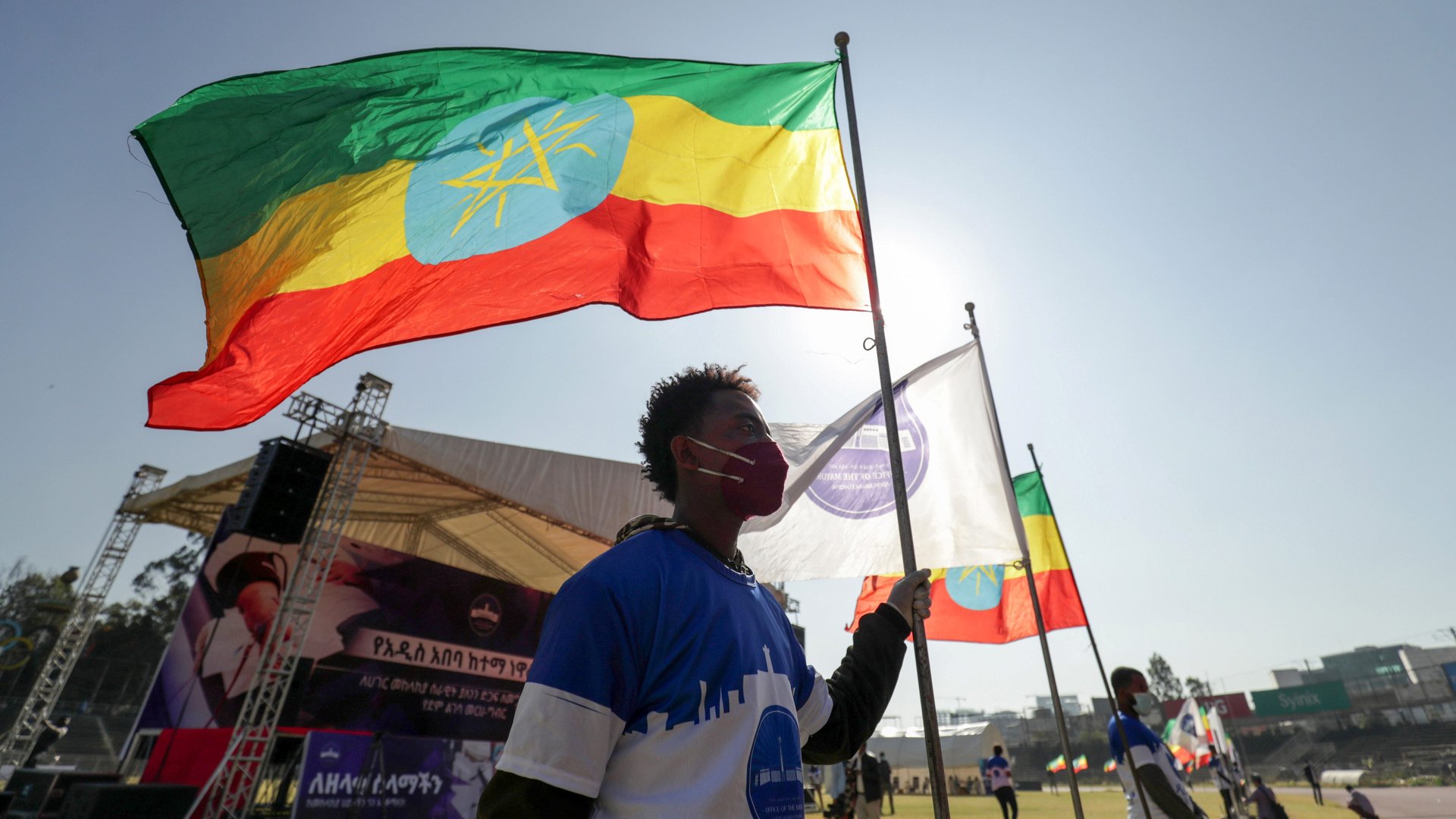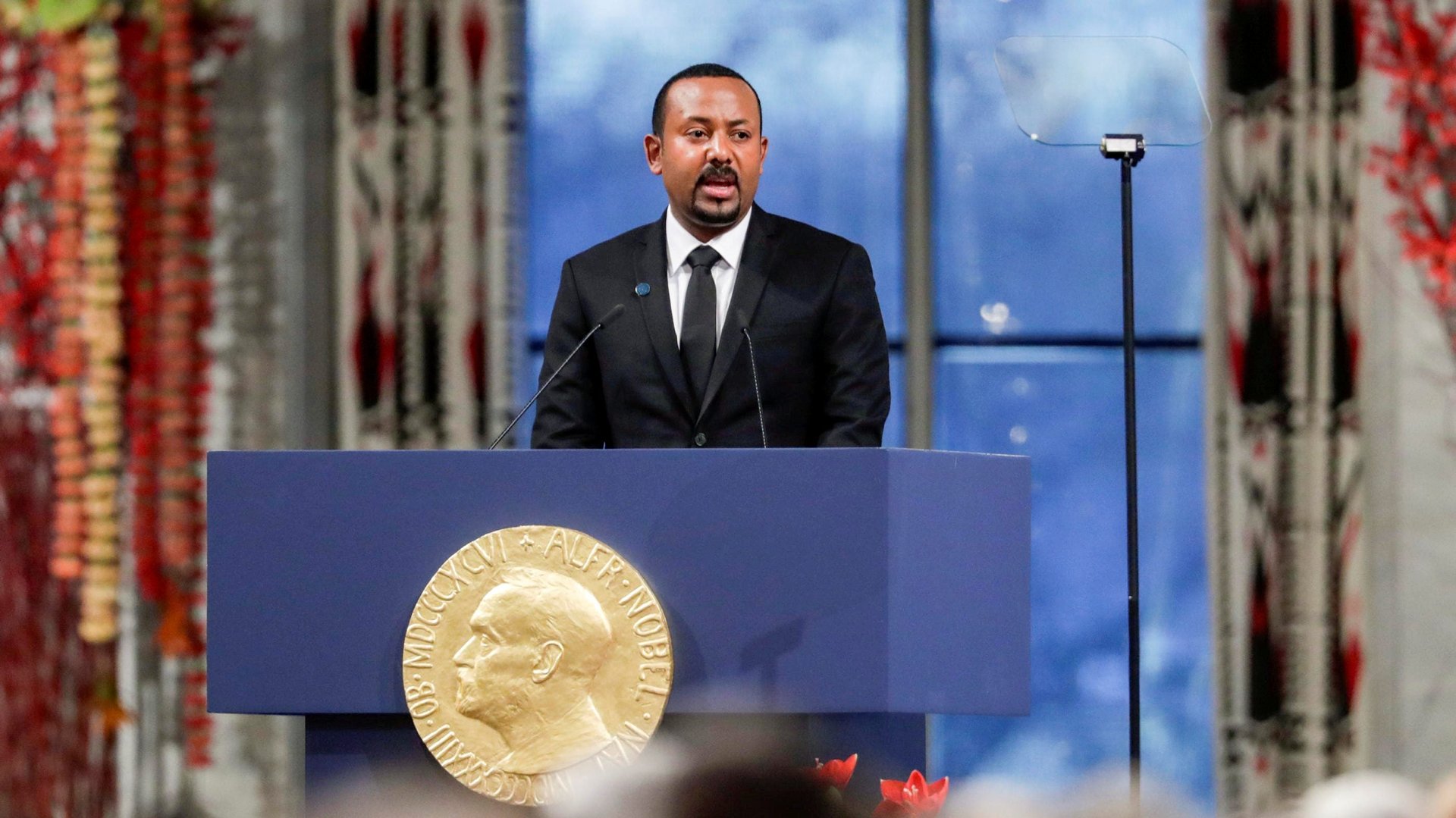The biggest casualty of Ethiopia’s brewing conflict will be its people, then its economy
Ethiopia’s prime minister Abiy Ahmed is under pressure to end the conflict with its northern state of Tigray as the regional dispute gets closer to spiraling into a full-blown civil war which would impact millions of ordinary Ethiopians and devastate an economy which has regularly been hailed as one of the world’s fastest-growing over the last decade.


Ethiopia’s prime minister Abiy Ahmed is under pressure to end the conflict with its northern state of Tigray as the regional dispute gets closer to spiraling into a full-blown civil war which would impact millions of ordinary Ethiopians and devastate an economy which has regularly been hailed as one of the world’s fastest-growing over the last decade.
In Tigray, hundreds of Ethiopians have been reported killed as the government took military action which Abiy insisted this week is part of his government’s effort to enforce the rule of law as the federal government suspended all modes of communications and all banks stayed closed.
Human rights group Amnesty International said on Nov. 12 that “likely hundreds”, of people were stabbed or hacked to death in a town called Mai-Kadra in the South West Zone of Tigray Region on the night of Nov. 9 as part of the escalating conflict based on images it had obtained. Due to the lack of conventional communications Amnesty said it confirmed the gruesome images were recent and used satellite imagery to geolocate them.
Abiy said on Thursday a military offensive had “liberated” the western part of Tigray region where Ethiopia’s federal troops had been battling with local Tigray forces for a week.
Tensions between the federal government and Tigray’s ruling party TPLF has been mounting for the last three months, triggered when the state held regional elections even after Addis Ababa had suspended national elections due to the coronavirus pandemic. The country’s House of Federation, the upper house of parliament, later outlawed the elections describing them as “null and void” but the TPLF, which won has ignored the federal government and moved ahead.
Things came to a head following an attack allegedly carried out by the Tigray regional state against forces of the national army, the situation escalated to a deadly armed forced confrontation, followed by an airstrike. The prime minister, who won the Nobel Peace Prize last year for ending conflict with Eritrea, now insists international concerns about the growing conflict are a result of observers not having a deep understanding his country’s context.

There are significant worries in Ethiopia and around the world that the crisis could spread southwards to other politically fragile regions of the country including Oromia and Amhara, where there have been a mix of protests and militant activity over the last year.
Sudan has offered to negotiate with the federal government and TPLF, as Ethiopia establishes conditions for any ceasefire including having the now outlawed leadership of Tigray handed over to the federal government for trial.
This would have significant impact on a once dynamic economy, warn analysts.
“Civil conflicts generally have a negative impact on economic growth, so we could expect it to weaken somewhat due to wider insecurity and especially significant is the conflicts on Ethiopia’s foreign exchange, as it has been one of the biggest constraints on growth,” Jos Meester, a senior research fellow at the Clingendael Institute.
“Ethiopia’s internal conflict in the Tigray region risks unraveling years of economic and social progress, at a time when weak revenues and elevated external vulnerability as a result of the global coronavirus crisis is already pressuring creditworthiness,” says Kevin Dalrymple, sovereign analyst at Moody’s.
The Horn of Africa country, home to the continent’s second largest population, had been on a decades-long reform which had seen the country overcome its years of economic upheaval and famine during the 1980s under the Marxist Derg regime, to become one of the world’s fastest-growing nations this century. The country’s economy grew by an average of 10.8% between 2004 and 2014.
At the start of 2020, Quartz Africa noted the one-time miracle economy was slowing and set for a bumpy ride, but the economic crisis in the wake of the pandemic has undoubtedly been much more challenging and the IMF slashed its growth forecast to 3.2% from 6.2%.
But all this was before recent events challenging its federal political system led the country to a point where there is a real chance any economic growth will be unlikely if some of its largest or most powerful regions are at war with each other or with the national government.
“The way in which the current crises between the federal government and the TPLF are managed will no doubt set a precedent for future federal-regional interaction,” says Ann Fitz-Gerald, a director of the Balsillie School of International Affairs and a veteran of previous internally sponsored peace talks in the region. “Such a precedent must be careful to avoid the risk instability mounting in other regional states and/or invite similar levels of regional security structures elsewhere.”
The ongoing situation will leave the Ethiopian government with few options to manage the economy, says Fitz-Gerald: “Already faced with the impact of a weak global economy, a predatory financial model underpinning Chinese investment in the country and high levels of debt acquired over the past decade, ongoing instability without prioritizing rule of law will limit foreign direct investment and the few levers of the country had to navigate through the crises.”
Sign up to the Quartz Africa Weekly Brief here for news and analysis on African business, tech, and innovation in your inbox